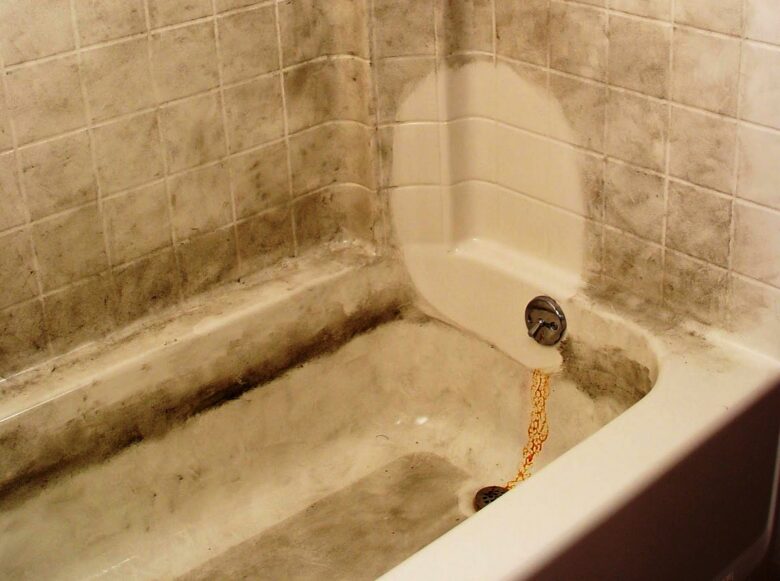A common problem in homes is hard water stains, especially if the water source contains high amounts of minerals. These stubborn stains leave a chalky white film that stains faucets, shower doors, toilets and sinks, making your home look dirty. But getting rid of these unsightly stains is easy if you do things the right way. This article describes how professional cleaners can remove hard water stains to keep your home clean and inviting.
How to Remove Hard Water Stains:
Water containing large amounts of minerals, such as calcium and magnesium, can leave stains on the surface. When this water disappears, the minerals are left behind. Over time, these deposits build up, leaving many homes with stains that are difficult to remove. Finding out what is causing these stains is the first thing you need to do to eliminate them effectively.
Ways to Avoid Problems:
1. Wiping Surfaces Regularly: Especially after using water, is one of the best ways to prevent hard water stains. Use a scraper on shower walls and doors after each use to prevent mineral buildup.
2. Water Softener: Installing a water softener can significantly reduce the mineral content in the water, preventing the formation of hard water stains.
3. Protective Coating: Applying a protective coating to your glass can help prevent water and minerals from adhering to the glass, making it easier to clean.
Cleaning Tips from the Pros:
1. Vinegar and Water Solution: Mixing equal parts white vinegar and water is an easy way to remove hard water stains that works great. Because vinegar is acidic, it helps break down mineral buildup. Use a spray bottle to spray the solution. Let it sit for a few minutes, then wipe or scrub the stains away.
2. Baking Soda Paste: For trickier areas, a baking soda and vinegar paste can give you the extra scrubbing power you need. Apply the paste to the area and let it sit for 15 to 20 minutes. Then use an anti-scratch sponge to scrub and rinse.
3. Lemon Juice: Because lemon juice is acidic, it is a lot like vinegar. It works very well on chrome fittings and glass. You can wipe the stain with half a lemon or apply lemon juice with a cloth. Let it sit for a few minutes and then rinse it out.
4. Commercial Cleaners: Commercial cleaners specifically designed for hard water stains can effectively remove hard-to-remove stains. Look for items that contain chemicals that can break down mineral deposits. Always use something the way the manufacturer tells you to use it.
5. Pumice Stones: To remove hard water stains from ceramic surfaces, such as bathrooms, use a soft pumice stone that will not scratch. To ensure it works gently, moisten the stone and surface before use.
More Advanced Methods:
1. CLR (Calcium, Lime and Rust) Removers: These are special cleaners used to remove hard water stains, limescale and rust. They are particularly effective against stubborn grime, but use them sparingly and follow the directions on the bottle to clean surfaces.
2. Professional Glass Polishing: If the glass is very contaminated, it might need to be polished. This method can remove years of tarnish and make the glass clear again.
Care and Maintenance:
1. Regular Descaling: To prevent mineral buildup, water-using appliances such as kettles, coffee makers and dishwashers should be descaled regularly. Use vinegar or certain descalers to keep appliances in good condition.
2. Safety Precautions: Regularly waxing your shower walls and doors with car wax creates a layer that prevents water and minerals from adhering, making future cleaning easier.
3. Cleaning with Filtered Water: Cleaning with distilled or filtered water can prevent new hard water stains from forming, especially on glass and high-gloss surfaces.
Conclusion:
Although hard water stains are difficult to remove, they are not impossible. If you know what to do and do it regularly, you can protect your home from the unsightly deposits left behind by hard water. Whether you use vinegar and lemon juice or a store-bought cleaner to do the tough job, the most important thing is to maintain care and protection. By understanding how stubborn water stains work and being proactive in cleaning and caring for them, you can keep your home looking sparkling.
FAQs:
1. Will surfaces be damaged if you use vinegar to remove hard water stains?
Although vinegar is an effective natural solution for removing hard water stains, it can damage some surfaces due to its acidic nature. It is not recommended to use it on natural stone surfaces such as granite or marble, as it can etch the stone. Be sure to test a small, inconspicuous area first, or consult the manufacturer’s care instructions for the specific materials in your home.
2. How often should I use water softener to prevent hard water stains?
A water softener is installed directly in your home’s water supply and works continuously to remove minerals from the water. According to the manufacturer’s instructions, regular maintenance of your water softener is necessary to ensure that it always works effectively. Regular use is not necessary, it is a permanent solution for hard water.
3. Are commercial hard water stain removers safe for septic systems?
Many commercial hard water stain removers are designed to be safe, but it is important to read product labels carefully. Look for cleaning products that clearly state that they are safe for use in septic systems to avoid disrupting the bacterial balance in your septic tank.
4. How do you prevent hard water stains on shower doors?
Regularly wiping your shower door with a squeegee after each use is one of the most effective preventive measures. Additionally, applying a protective coating or car wax to your shower door creates a barrier that prevents water and minerals from adhering, making it easier to keep your shower door clean and free of hard water stains.
5. What is the best way to remove hard water stains from your toilet?
For toilets, using pumice is an effective way to gently scrub away hard water stains without damaging the porcelain. Wet the pumice stone and the stained area first to ensure a gentle scrub. For tougher stains, it can also be effective to use a CLR remover or a mixture of baking soda and vinegar and let it sit before scrubbing. Be sure to flush the toilet after cleaning to remove any residue.

